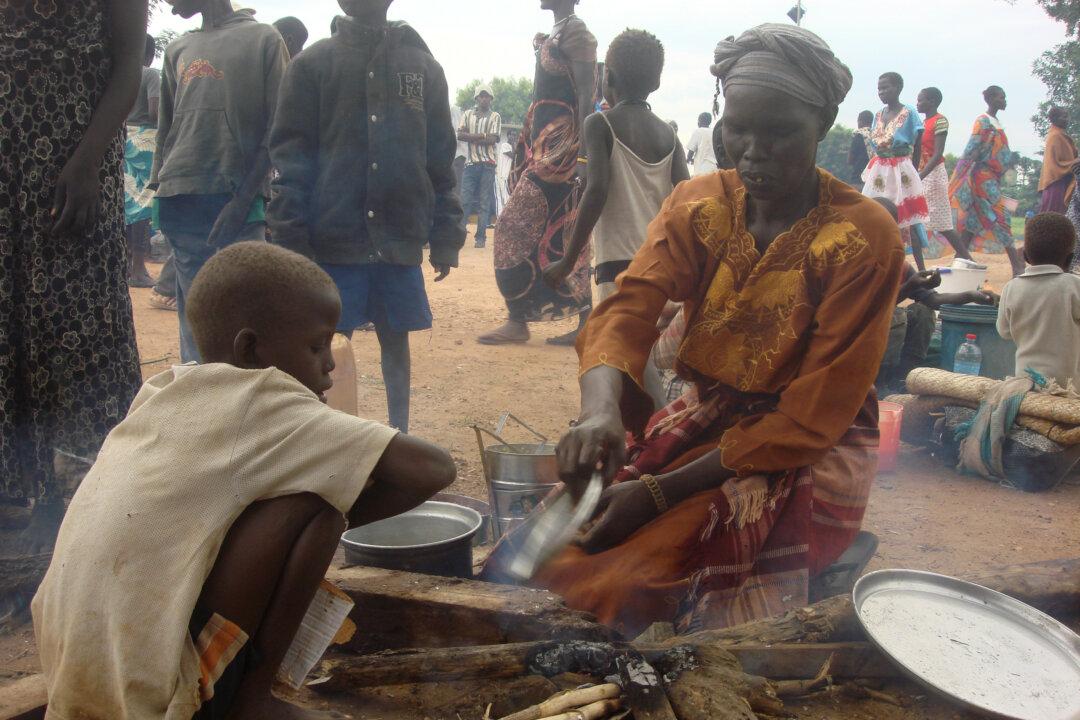Every 15 seconds, an African child loses a parent due to AIDS. The increasing number of AIDS orphans in Africa is one of the most serious consequences of the HIV/AIDS epidemic today.
The toll on children has become so serious that UNICEF has included an indicator related to the prevalence of HIV/AIDS in its “child risk measure.” “The staggering number of African children already orphaned due to disease is only the beginning of a crisis of gargantuan proportions…and the worst is yet to come,” reported UNICEF.
Worldwide, it is estimated that more than 16 million children are orphans because of AIDS, of which 14.8 million live in Sub-Saharan Africa. In some countries, a larger proportion of children have become orphans due to AIDS than to any other cause.
“The staggering number of African children already orphaned due to disease is only the beginning of a crisis of gargantuan proportions…and the worst is yet to come,” reported UNICEF.
Children orphaned because of their parents’ death by AIDS are likely to be malnourished and unschooled, and are at greater risk of becoming HIV-infected themselves. At the same time, because they are emotionally vulnerable, when they grow up they may tend to engage in risky sexual behavior that may lead to a vicious cycle of abuse and exploitation.
What makes this situation particularly worrisome is that the number of orphans will continue to rise for at least the next decade. Orphans due to HIV/AIDS are part of a much larger problem, since countries that have high rates of AIDS' orphans also have high number of children directly affected by the epidemic, and who are often just as vulnerable. Although their total number is difficult to assess, it has been estimated that over 3.4 million children worldwide are living with HIV/AIDS.
Because AIDS orphans may miss out on some valuable life-skills passed on by their parents, they are more likely to face social, health and economic problems as they grow up. In addition, orphans, particularly those from poorer households, are less likely to attend school compared to non-orphan children.
It is necessary to develop major educational campaigns to make adults more aware of the danger of the infection not only to them but also the risks it poses to their children. Today, fewer than 10 percent of the almost 15 million African children orphaned by AIDS are receiving any kind of public support.
To help AIDS' orphans in a more immediate and practical way it is necessary to strengthen the capacity of extended families to protect and care for orphan children, by providing them with financial aid through local councils or provincial governments.
Björn Ljungqvist, UNICEF Representative in Ethiopia, has stated, “In all countries where you have a big HIV/AIDS epidemic, at first you don’t see any orphans at all, as they are absorbed by the traditional systems. And then all of a sudden you seem to reach some type of breaking point and you start finding these children in the streets, you start finding them working in difficult conditions, you start finding even child-headed households.”
Orphan children’s special needs should also be addressed through community-based responses and by increasing the capacity of local orphanages. It is critical to diminish the stigma surrounding the HIV infection. Because of this stigma, many orphan children are denied access to schooling and health care and may end up living as street children.
Often times, children who have lost their parents to AIDS are assumed to be also infected with HIV, a situation that further stigmatizes them. It is critical not only to develop new government policies including legal, education and labor frameworks, but making sure that these policies will be implemented.
César Chelala, MD, PhD, is an international public health consultant and the author of AIDS: A Modern Epidemic, a Pan American Health Organization publication.
The Increasing Problem of AIDS Orphans in Africa

A boy holds a plate as pupils queue for lunch in a school for children orphaned by AIDS on March 1, 2012 in the town of Bulembu in Swaziland. Swaziland has the world's highest rate of HIV infection, with at least one in four adults carrying the virus, and about 120,000 children have been orphaned, comprising more than 10 percent of the total population. Stephane de Sakutin/AFP/Getty Images
|Updated:



